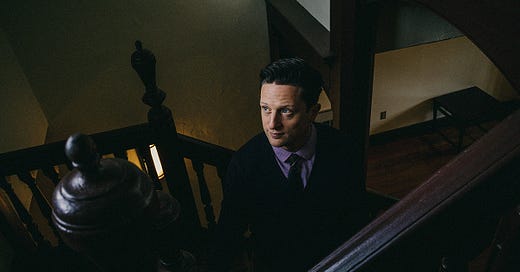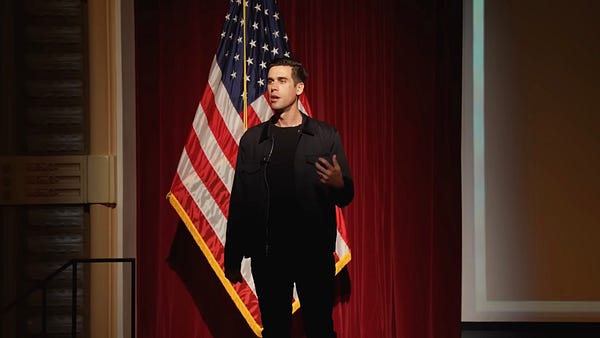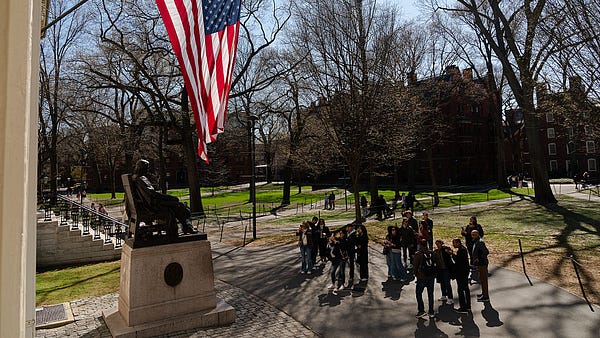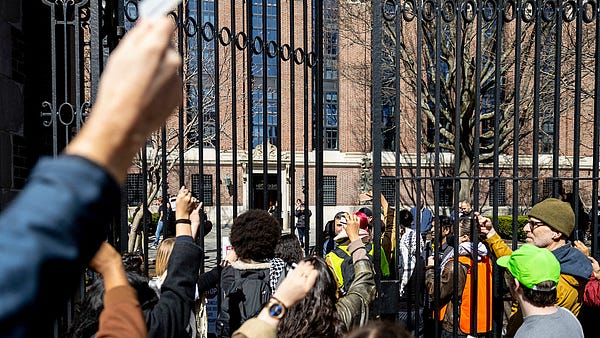
Shilo Brooks is on a mission to teach Ivy League students how to read.
If the trend in academic life for the past few decades has been to skim hundreds of pages per day and then pick apart the past, Brooks wants to do something old-school that feels radical: he wants his students to absorb no more than fifty pages a week and see the big picture. And he’s doing it by bucking another trend: he’s embracing great men (and women).
And his message is resonating. When Brooks first debuted his elective course, “The Art of Statesmanship and the Political Life,” in the spring of 2023, just forty kids enrolled. This spring, more than 250 signed up, making it one of the most popular classes that semester, alongside major requirements like Introduction to Computer Science.
Brooks said his course is a deep dive into the autobiographies and speeches from five famous historical figures:
The ancient Greek thinker Xenophon, a student of Socrates who wrote a book about “the life of great ambition.”
Italian Renaissance philosopher Niccolò Machiavelli, author of The Prince, whose last name is now synonymous with selfish opportunism.
President Theodore Roosevelt, the macho man who was taunted as a child for wearing glasses, and “hit people in the face because of it.”
The country’s first female Supreme Court justice, Sandra Day O’Connor, who grew up on a 250-square mile ranch in Arizona and reminds Brooks of his own upbringing: “I see myself, oddly, in her.”
And finally, Frederick Douglass, the former slave who proves that greatness is not just about “how high you get” but “how low you start.”
Brooks said he chose those five characters because each of their stories shows “a grit, a roughness, a rebelliousness, a refusal to conform, an emphasis on individuality that I want these students to see.”

“I’m teaching more than just these books,” he added. “I’m teaching a way of making sure your spirit survives the pressures that are put on it and that you remain a unique individual.”
Brooks first developed his ideas about greatness in 2017 when he was a professor at the University of Colorado Boulder, where he pioneered a new ethics curriculum for the school’s engineering department. By putting great books “in conversation with the big questions of technology and science,” he said, he aimed to build the character of his students.
Five years later, one of Princeton’s most famous professors (and its most prominent social conservative), Robert George, hired Brooks to help run his James Madison Program, which he founded in 2000 to teach “American ideals and institutions.” George told me Brooks is a “genuine truth seeker” and an “ideas man,” which is why he encouraged him to come to the school.

When I met Brooks a few weeks ago, he’d just been promoted to the Madison Program’s executive director, and he was moving into a new office in a Gothic-style mansion. Afternoon light poured through stained glass windows, illuminating boxes of books and a framed first-edition cover of F. Scott Fitzgerald’s This Side of Paradise, inspired by the author’s time at Princeton.
Brooks said he first read the novel in his bedroom back home in Lubbock, Texas, when he was 18, and he was amazed to discover there were places where “young men could read books and engage in disputes about poetry.”
“You got to understand,” he said, fixing me with his blue eyes, “in Lubbock, nobody was doing that.”
“To sit here 20-plus years later, it’s just, I mean, it’s unbelievable,” he said. “It’s like being in a foreign country. It’s the greatest privilege.”












